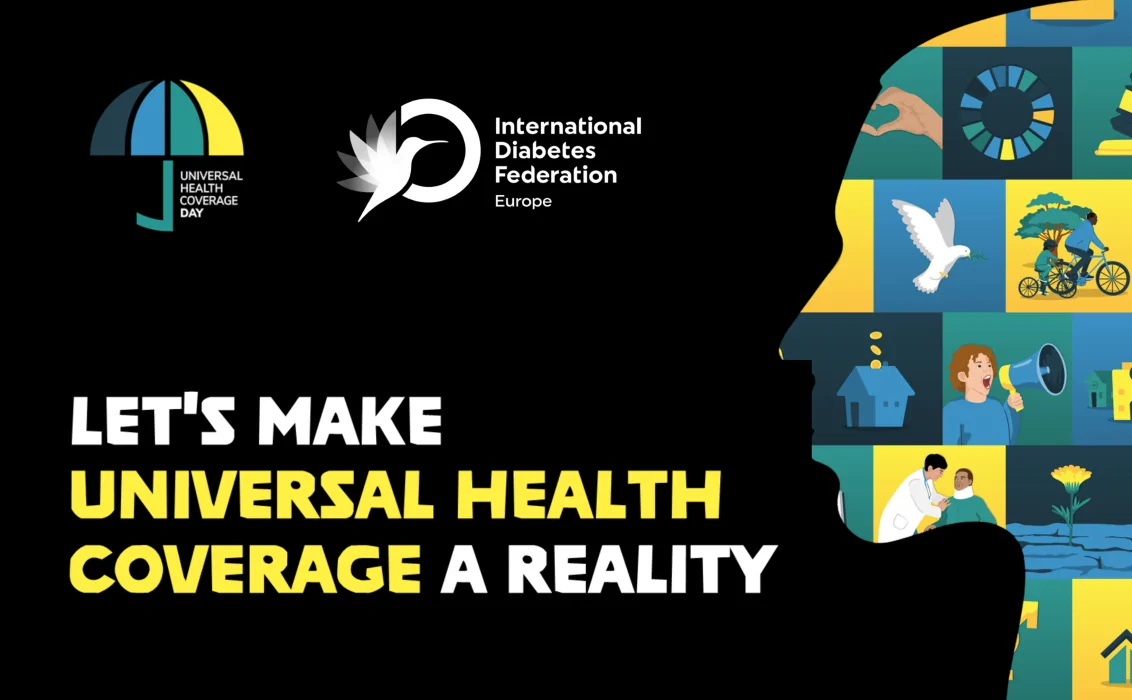Today, digitalisation is transforming diabetes care, perhaps more rapidly than any other therapeutic area. It is critical to ensure that the ever-increasing quantity of health data, including data collected via diabetes devices, apps, etc., can be leveraged not only to improve health outcomes for people living with diabetes (PwD) but also to inform policymakers about the actions required to address diabetes management and prevention and to allow for more research and innovation.
Hence, it is crucial that all stakeholders within the diabetes community contribute to the European Health Data Space (EHDS) public consultation organised by the European Commission (EC) and express their views on how to best promote the exchange of, and access to, different types of health data to support healthcare delivery as well as research and informed policymaking. The feedback received during this consultation will be taken into account in the EC’s development of an EU legal framework for the EHDS. A legislative proposal by the EC is expected to be published either in Q4 2021 or Q1 2022.
The COVID-19 pandemic has exposed the fault lines in our current healthcare systems and disproportionately affected people with pre-existing health conditions. Not only does diabetes lead to severe cases of COVID-19 but there is also emerging evidence that COVID-19 could trigger new cases of diabetes. In this context, it is crucial to have a knowledge ecosystem in place that can provide insight into how diseases interact with each other and how they react to different treatments. Small data sets and clinical trials are insufficient to create robust and agile ecosystems that can support the resilience of the healthcare sector and contribute meaningfully to improved health outcomes for PwD. People living with diabetes and other conditions will benefit from massive data spaces that are interoperable and can be scaled up to genuinely respond to unmet needs.
Harmonised, Europe-wide data frameworks have the potential to bring about significant improvements in the prevention, management, and care of diabetes and other non-communicable diseases (NCDs) and reduce health inequalities across the EU. Data needs to be collected across the Union around a commonly agreed set of indicators, including patient-reported outcome and experience measures. These are essential to support a move towards more innovative, patient-centred, value-based healthcare systems, which would allow for improved resource allocation, faster and easier identification of effective interventions, reduced expenditure, and, ultimately, improved health outcomes and well-being for health system users. The infrastructure and interoperability of collected data must be supported by a clear governance framework built on transparent foundations that fully protect citizens’ data in accordance with GDPR rules. Data protection and responsible use of data are non-negotiable.
People living with diabetes must be treated as equal stakeholders in the design of the EHDS as they are best placed to determine what system of care and health outcomes matter most to them, how they wish to gain access to their own and others’ data, and how they wish for their data to be used. In-depth engagement with people living with diabetes and other conditions must be fully integrated into the design of any future solutions. Patients must be meaningfully involved in defining the rules regarding data sharing and data accessibility. The creation of digital platforms where PwD can access their own data as well as that of others (anonymised), for research and educational purposes or for additional insights, should be implemented as part of the framework.
Addressing the digital divide and digital literacy needs of PwD, healthcare professionals and regulators are pre-requisites to ensuring equal access to health and a reduction in health inequalities within and among Member States (MS). Reducing inequalities can only be achieved if digital health is accessible to all and PwD have access to appropriate education and training. EHDS must work in concertation with other initiatives to ensure that all EU citizens have the means and knowledge to avail themselves of the digital health revolution through improved digital literacy and access to digital tools.
Evidently, large data spaces and knowledge ecosystems hold significant potential to improve healthcare delivery, respond to unmet patient needs, and reduce inequalities within and across MS. This is the reason why it is essential that all diabetes stakeholders contribute to the consultation and share their knowledge and best practices on how to build a future-proof data infrastructure, make data sets interoperable while protecting citizens’ privacy rights, involving PwD and other civil society actors at all stages of decision-making and equipping them with the necessary tools and knowledge to benefit from the digital health revolution.



